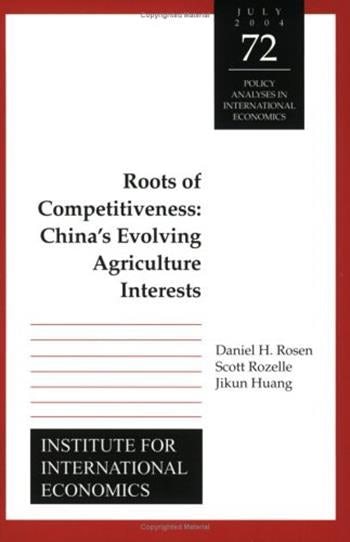It is a cliché that China is the world's manufactured goods factory, but most observers are just as certain that China's farmers are a serious burden on growth. Yet China in fact has the makings of an internationally competitive agricultural sector, with the market setting most prices, farmers shifting quickly toward what they produce best, and significant research and development focused on biotechnology and other promising areas. China's trade interests are changing as its farmers become more competitive, and this transformation will have major implications for world trade talks and global economic welfare. This study traces the steps China has taken to make agriculture a winning sector, the evidence that its initiatives are working, and the course the country is likely to take.
- Cover
- Contents
- Preface
- Acknowledgments
- Chapter 1 Introduction
- Chapter 2 China and the WTO Agriculture Agenda
- Pillars of the Doha Agriculture Talks
- Other Agenda Items
- Conclusions
- Chapter 3 China’s Interests and Their Foundation in Reform
- Chinese Reforms Before Joining the WTO
- Cautionary Conclusions on Reform
- Chapter 4 The Impact of China’s WTO Commitments
- China’s WTO Track Record
- WTO Effects on Farmers
- Allowable Domestic Supports
- Chapter 5 Where Will China’s Future Interests Take It?
- Awareness of Interests
- The WTO Agriculture Agenda and China's Interests
- Political Economy of China’s Agricultural Policy
- Managing Contentious Issues
- Chapter 6 Conclusions
- Learning from Mistakes
- China and the United States
- Appendix A The CAPSiM Model
- References
- Index

